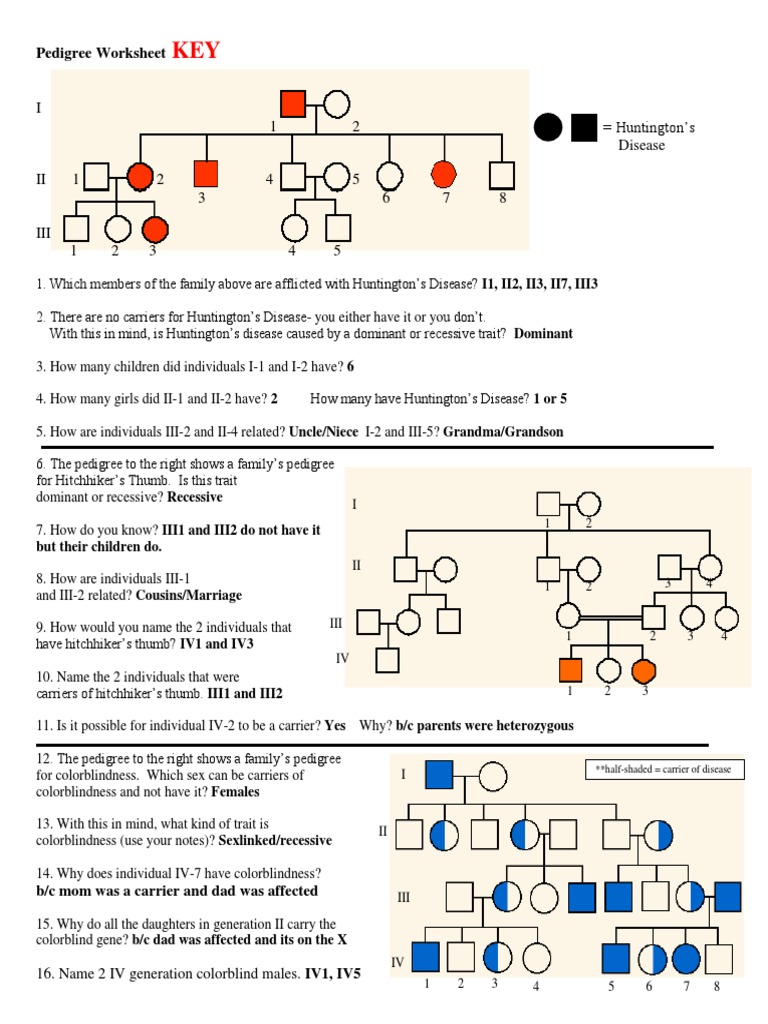Pedigree Human Genetics Disorders Worksheet Answer Key Use the pedigree below to answer 6 12 Shaded individuals have Huntington s Disease Individuals are numbered for each generation right to left they are denoted with their generation and their number See 7 for example 6 Write the generation on
Pedigree WS Pt2 KEY Pedigrees Practice In humans albinism is a recessive trait The disorder causes a lack of pigment in the skin and hair making an bino appear very pale with white hair and pale blue eyes or in some cases red eyes This disorder also occurs in animals a common albino found in a laboratory is the white rat Oct 22 2020 nbsp 0183 32 Fill out the blanks of the pedigree AA Aa or aa a How many children did the original couple have b How many grandchildren c How many of their grandchildren are albino
Pedigree Human Genetics Disorders Worksheet Answer Key
Pedigree Human Genetics Disorders Worksheet Answer Key
https://imgv2-2-f.scribdassets.com/img/document/439685027/original/a3d76aba62/1607283265?v=1
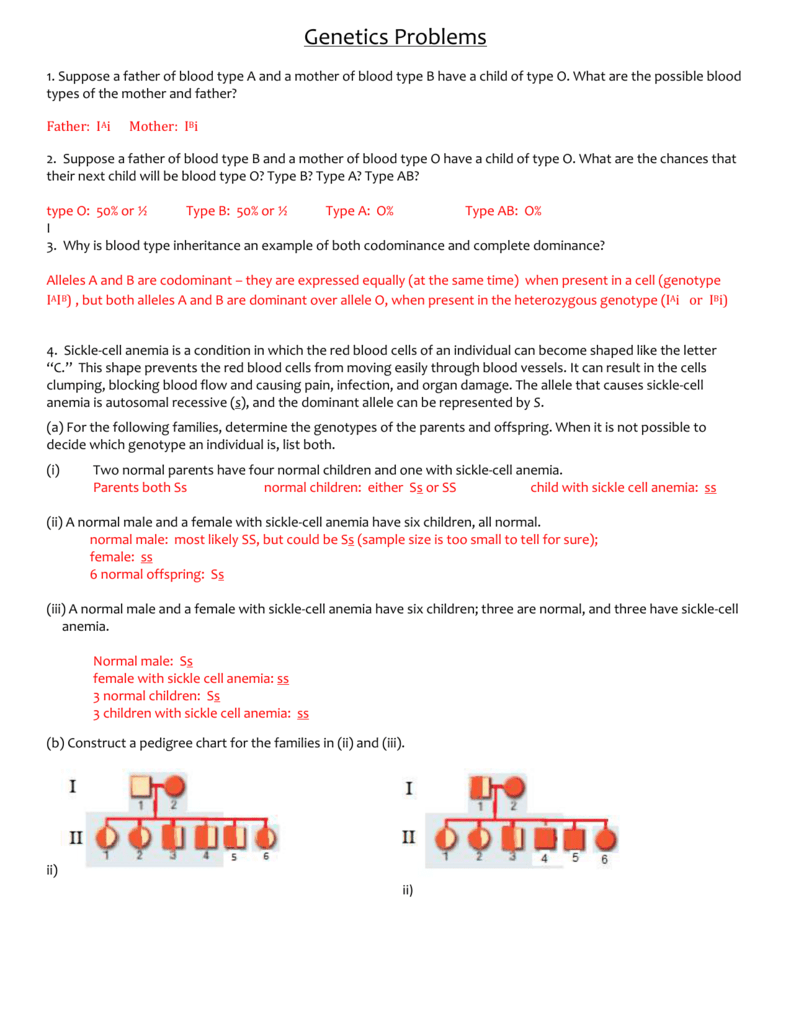
Genetics Practice Problems 5 Abo Multiple Allele Worksheet 1 Answers
https://timestablesworksheets.com/wp-content/uploads/2020/11/genetics-problems-worksheet-answers-1.png
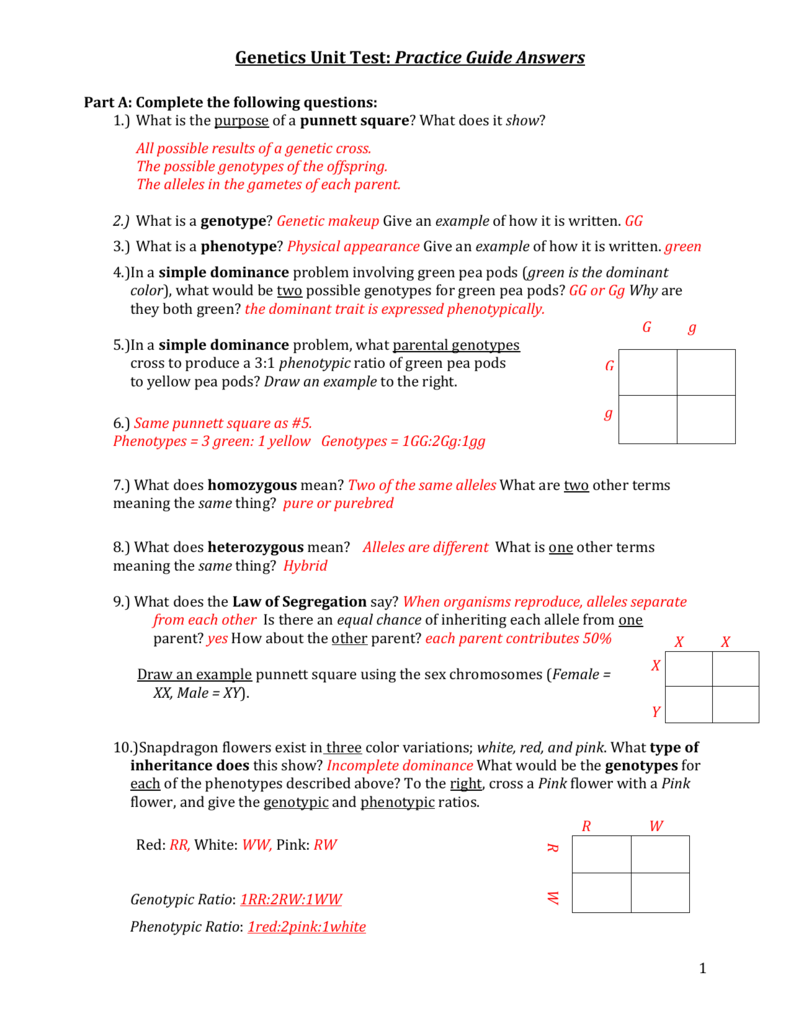
Genetics Practice Guide
https://s3.studylib.net/store/data/006693735_1-7a88581aaa71632fe9ccd6334e4a5471.png
Nov 24 2018 nbsp 0183 32 This worksheet gives students a chance to practice identifying genotypes on pedigree charts The pedigrees focus on human genetic diseases such as albinism dwarfism tay sachs and sickle cell anemia Answer key to free worksheet available at https www biologycorner worksheets pedigrees practice b html Students examine pedigree charts and determine the genotypes of members of the family Pedigrees look at autosomal dominant traits like dwarfism and recessive traits like sickle cell anemia
Practice Problems for Genetics Session 3 Pedigrees In the following human pedigrees the filled symbols represent the affected individuals You may assume that the disease allele is rare and therefore individuals marrying into the family are unlikely to have defective allele a i What is the most likely mode of inheritance for this pedigree Pedigree charts are shown with descriptions of genetic disorders found in humans such as dwarfism and sickle cell disease Students fill out the genotypes of the family members and answer questions
More picture related to Pedigree Human Genetics Disorders Worksheet Answer Key
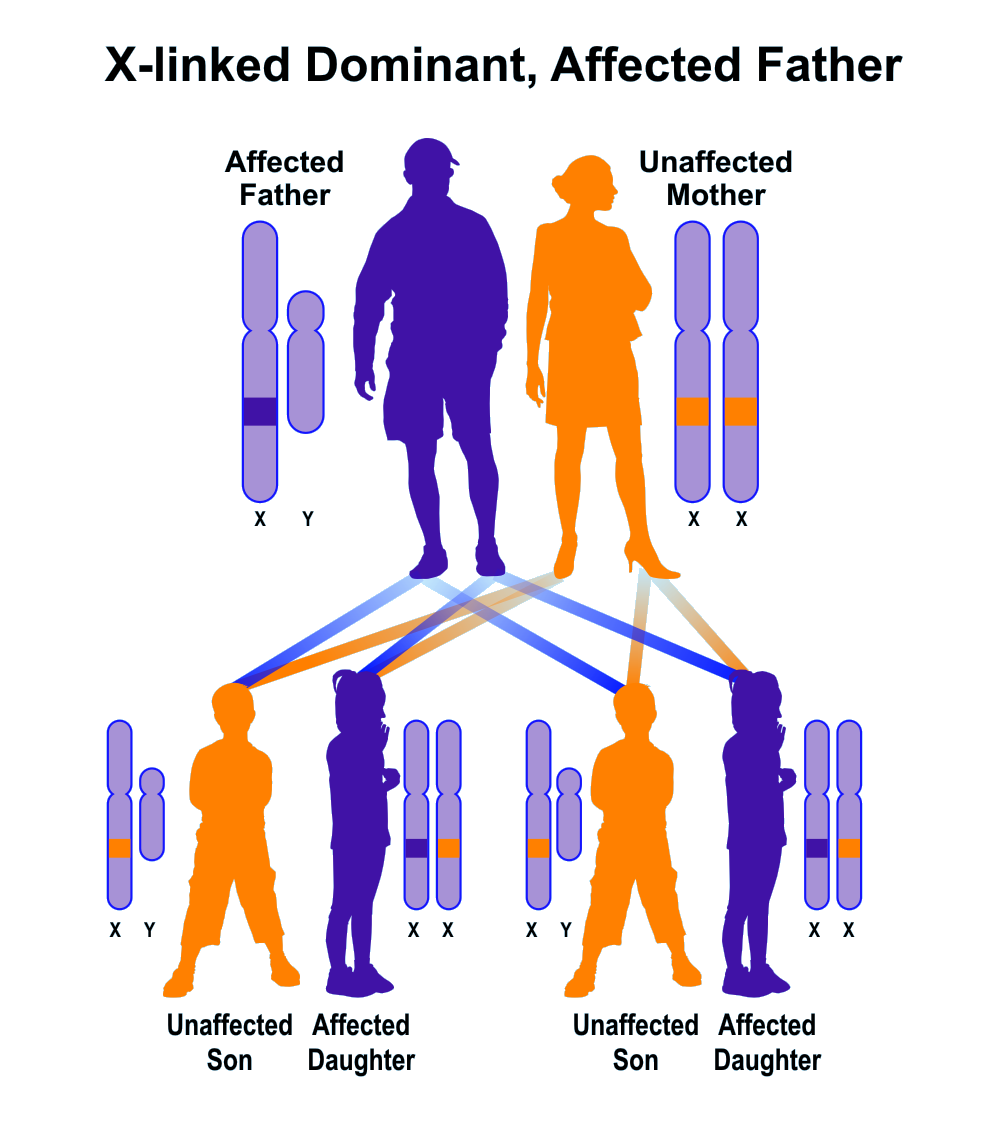
Genetic Facts Rare Disorders Society Singapore
http://www.rdss.org.sg/wp-content/uploads/2014/04/XLinked_D_F.png
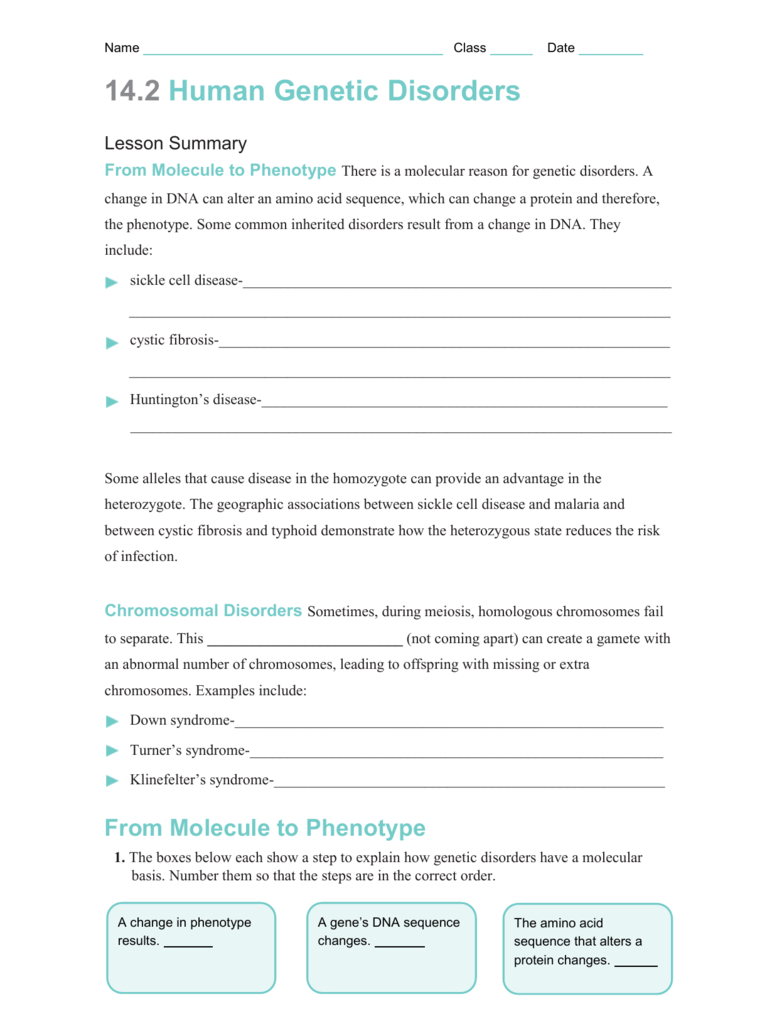
Human Genetic Disorders Worksheet Answers Promotiontablecovers
https://s3.studylib.net/store/data/007333850_1-d7c10d036636d4a2eac493600290f8f9.png

Human Genetics Practice WS Incomplete Codominant Sex Linked Answer
https://d20ohkaloyme4g.cloudfront.net/img/document_thumbnails/5557474036fb9f358bccc998a42b1711/thumb_1200_1553.png
A pedigree is a chart of a person s ancestors that is used to analyze genetic inheritance of certain traits especially diseases The symbols used for a pedigree are 1 Circles are females and squares are males 2 A shaded circle or square indicates that a person has the trait The pedigree seen below is for colorblindness Shaded individuals are
This document contains a pedigree chart and questions about inherited traits shown in the chart The chart shows a family affected by Huntington s disease which is dominant It also shows families affected by the recessive traits of hitchhiker s thumb and colorblindness Use the Pedigree below to answer 13 18 13 Write the generation on the pedigree numbers roman numerals The pedigree to the above shows the passing on of Hitchhiker s Thumb in a family
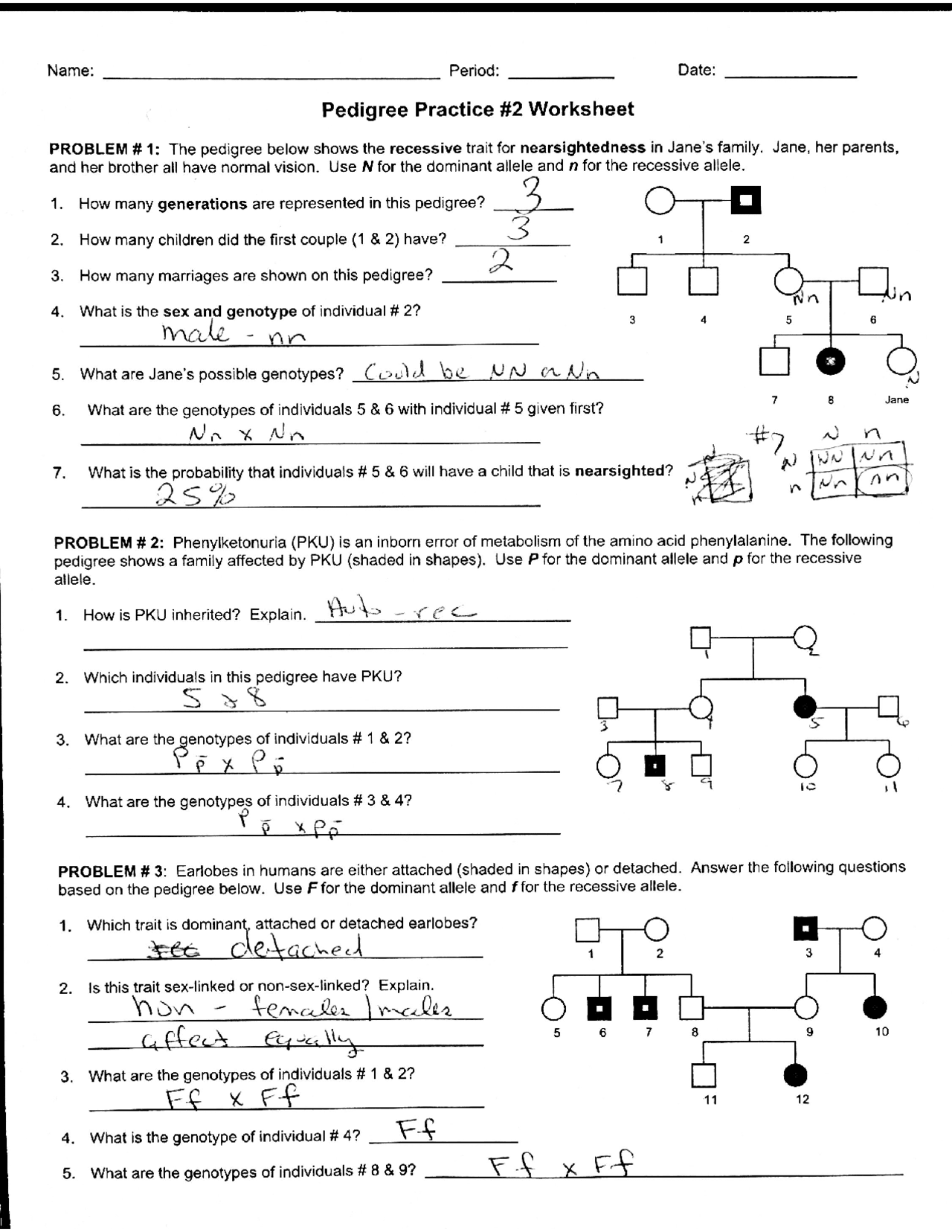
Worksheet Pedigree Practice With Answer Key Docsity
https://static.docsity.com/documents_first_pages/2021/04/20/ff67658adcf9451c8aab699d7000740e.png?v=1651038961

Pedigree Analysis APBiology KEY 1 Name KEY
https://d20ohkaloyme4g.cloudfront.net/img/document_thumbnails/184972d325fe180e6bda41ab868c36cd/thumb_1200_1553.png
Pedigree Human Genetics Disorders Worksheet Answer Key - The following human pedigree shows a family affected by a specific disease Assume that the individuals marked with an asterisk do not carry any allele associated with the affected phenotype and that no other mutation
